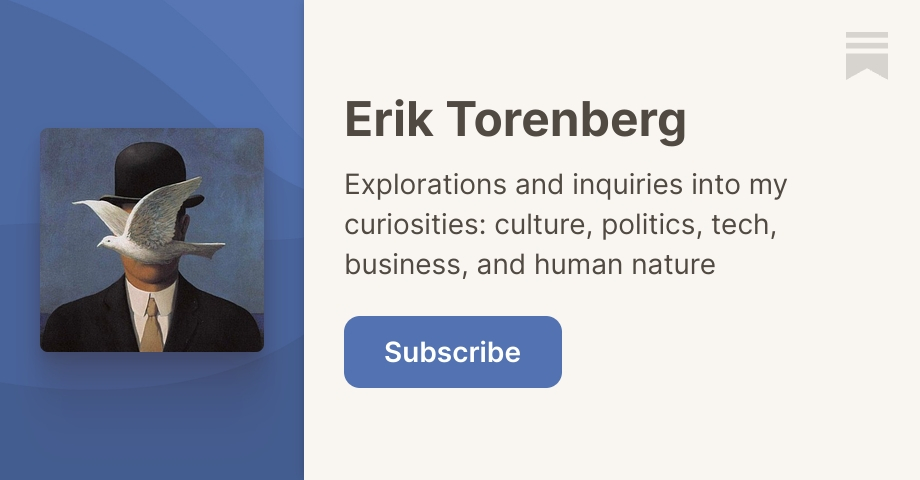So maybe we shouldn’t lament the end of peak centralization, particularly in media. The idea of there being one telephone company, two superpowers, three television stations, and four internet companies - it’s too homogenous. The fragmentation will lead to new cultures, ways of thinking, new ideas, and ultimately more cultural innovation.

